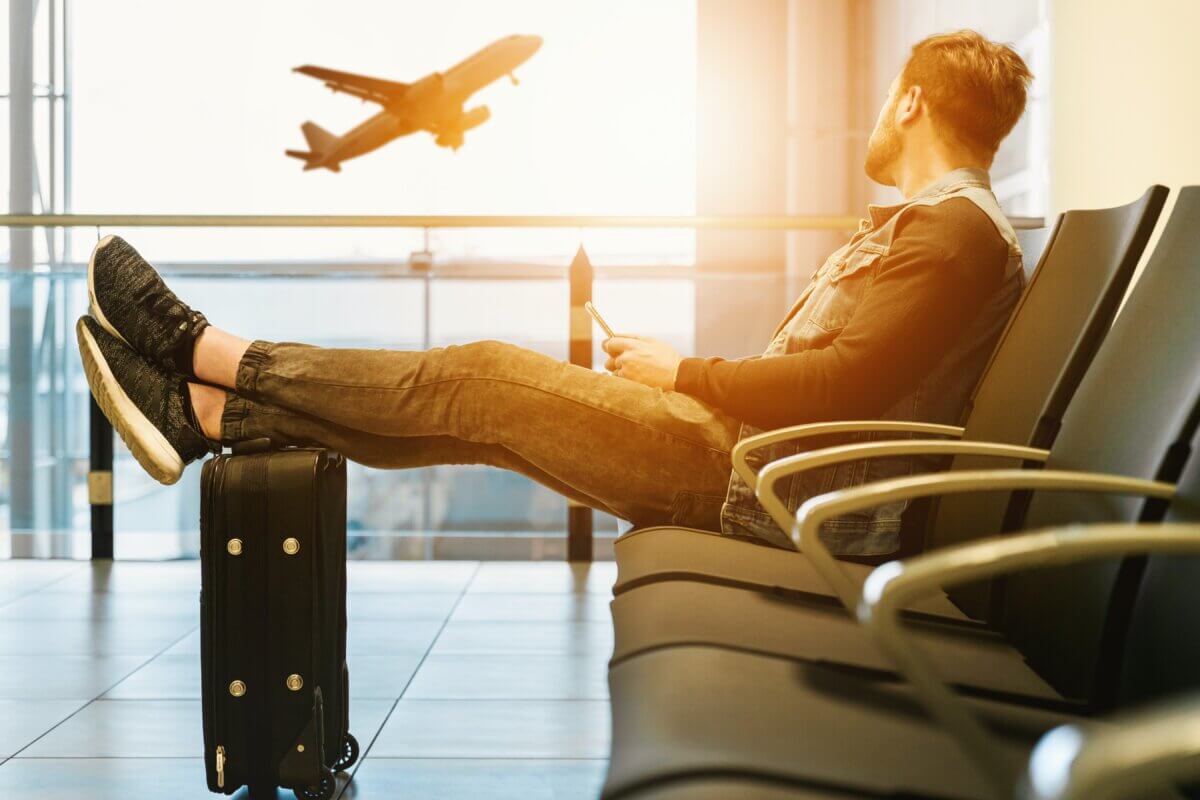4 In 10 Americans Are Thinking Twice About Traveling (Especially Overseas) Due To Safety Fears

(Photo by Nomad_Soul on Shutterstock)
In a nutshellNEW YORK — A majority of Americans feel “plagued” by nerves and anxiety at the mere thought of international travel, according to new research that reveals growing hesitation about trips abroad.
A Talker Research poll of 2,000 U.S. travelers found that in the past year, 94% have traveled domestically while only 28% have traveled internationally. The gap reflects increasing anxiety about leaving the country.
Fears of traveling abroad have grown for both groups: 30% of domestic travelers feel nervous about international travel, while 20% of travelers with international experience also feel nervous about doing it again.
How American Tourists Are Viewed Has Travelers On EdgeWhile 88% of Americans already have travel plans for the next 12 months, four in 10 are starting to get cold feet over their next vacation due to how “unsafe” they think traveling will be.
Travel-related anxieties stem from several concerns, with potential travel delays and cancellations topping the list at 42%. Other major worries include means of travel (40%), current government policies (40%), and current perceptions about American tourists (39%).
Additional fears include the possibility of getting hurt while traveling (31%), not knowing much about their destination (27%), having traveled to unsafe locations in the past (16%), and having bad past travel experiences (15%).
 Some travelers are having second thoughts about going abroad, worried that international views of Americans could ruin their trip or put them in harm’s way.(Photo by JESHOOTS.COM on Unsplash)
Safety Becomes the Top Priority
Some travelers are having second thoughts about going abroad, worried that international views of Americans could ruin their trip or put them in harm’s way.(Photo by JESHOOTS.COM on Unsplash)
Safety Becomes the Top Priority
A secondary study of 1,500 U.S. travelers conducted by AXA Assistance revealed that people mostly travel to visit family (34%), go on summer vacations (34%), or escape for weekend getaways (32%).
Nearly all travelers (95%) said safety was undoubtedly important to them. Some shared specific reasons why safety stays front of mind while abroad. “A lot of the time I travel alone, so I like to be prepared and also know my options in case something happens,” said one respondent.
According to another: “I am going to another location, where I don’t have my usual sources, so I have to trust that I will be safe. Also, I am going on vacation to relax and have a good time, not to worry about safety.”
“Traveling should be something people can really enjoy and be able to relax. But for many, that’s not always the case,” said Stephen Samataro, chief revenue officer at AXA Assistance. “The anxieties people feel are justified and reasonable. That’s why safety is so critical for people — people want the reassurance that they can worry less when they’re on vacation and focus more on their adventures.”
Travel Insurance Becomes More PopularThe AXA Assistance study found that only 10% bought travel insurance ahead of their last trip. Many believed it was either unnecessary (49%), expensive (40%), or that their trip was too short (28%).
However, attitudes are shifting. Now 65% are considering purchasing travel insurance before their next trip. Travelers are mainly motivated by having peace of mind (70%), having international travel plans (55%), and wanting to prevent unexpected costs (51%).
A third of travelers (32%) even consider travel insurance their go-to travel hack, and it’s even more popular among international travelers specifically (45%).
When looking at travel insurance, many said it’s “absolutely crucial” that they seek out a trustworthy company (50%), have benefits that meet their needs (45%), and have clear terms and conditions of coverage (44%).
“Travel insurance is a straightforward method of reassurance,” continued Samataro. “The anxiety and nervousness of travel can melt away once you know you have that protection abroad.”
The research reveals a notable shift in American travel behavior, with safety concerns and anxiety increasingly influencing both destination choices and travel preparation. As international travel anxiety grows, travelers are seeking more ways to feel secure and protected during their trips.
MethodologyTalker Research surveyed 2,000 Americans who have traveled domestically or internationally within the past 12 months online between May 20-27, 2025, for this study commissioned by AXA Assistance. Participants were recruited through online panels and programmatic sampling, completed the survey in English, and received small incentives. Quality controls excluded speeders, inappropriate responses, bots, and duplicate entries. Results may not represent Americans without internet access.